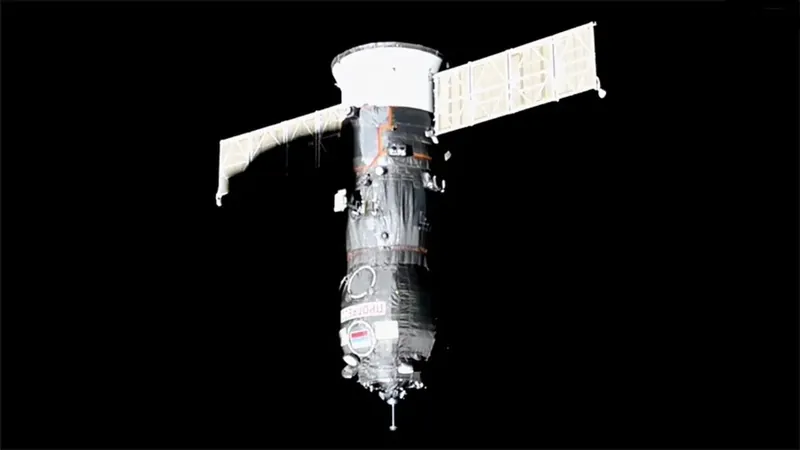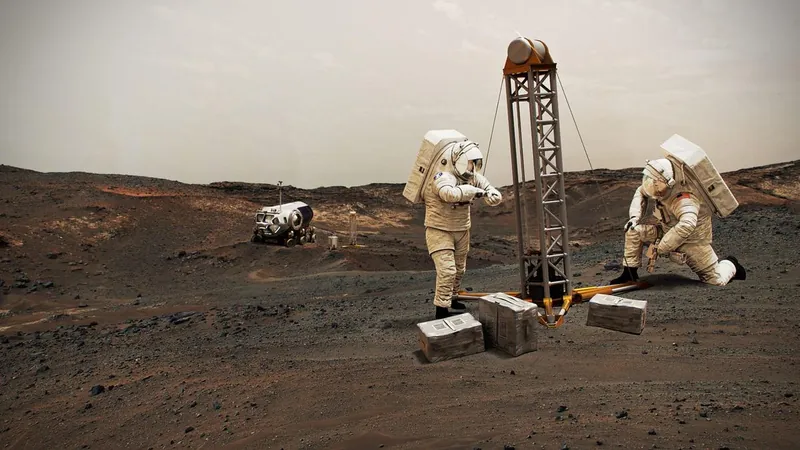
Strange Odor Delays Cargo Unloading on ISS: What You Need to Know!
2024-11-26
Author: Rajesh
Introduction
In a bizarre turn of events, astronauts aboard the International Space Station (ISS) faced an unexpected delay in unloading supplies from a Russian spacecraft due to an unusual smell. The Progress spacecraft, which successfully docked at the ISS on November 23 after launching on November 21, revealed a foul odor that prompted the astronauts to halt cargo operations temporarily.
The Smell and NASA's Response
NASA officials confirmed that the strange stench was monitored closely, but thankfully dissipated quickly. "The crew reported the odor dissipated rapidly, and cargo transfer operations are back on track as of Monday, November 25," the agency noted on its ISS blog.
Safety of the Crew
Interestingly, NASA clarified that the astronauts were never in danger despite the unusual odor. Preliminary reports suggest that the smell originated from outgassing—a process where gases are released from materials within the spacecraft. However, specific details about the source of the smell remain undisclosed.
Precautionary Measures
As a precautionary measure, astronauts working in the Poisk module, where the Progress spacecraft is docked, donned additional protective gear while they monitored the air quality. This situation highlighted the importance of air scrubbers and contaminant sensors installed on the ISS, which ensured that the station's atmosphere remained safe and at normal levels.
Ongoing Air Leak
The ongoing air leak on the Russian side of the station has piqued the interest of space observers. For over five years, NASA and its Russian counterpart, Roscosmos, have been trying to figure out the cause of this leak without reaching a consensus on its implications. While both agencies agree that the leak poses no immediate threat to the astronauts, they differ in their perspectives on its long-term significance.
Conclusion and Future of Progress Spacecraft
When the Progress spacecraft completes its unloading, it will remain attached to the ISS for several months before being filled with trash and other unwanted items for a fiery re-entry into Earth's atmosphere in 2025. This recycling practice not only serves to declutter the space station but also ensures that space debris is minimized.
Final Thoughts
With international cooperation at play, this incident underlines both the complexities and the vital nature of ongoing operations aboard the ISS. As astronauts continue to conduct scientific research and explore the wonders of space, they must also navigate through unexpected challenges—like peculiar smells and air leaks—along the way. Stay tuned for more updates on this fascinating journey into the cosmos!




 Brasil (PT)
Brasil (PT)
 Canada (EN)
Canada (EN)
 Chile (ES)
Chile (ES)
 España (ES)
España (ES)
 France (FR)
France (FR)
 Hong Kong (EN)
Hong Kong (EN)
 Italia (IT)
Italia (IT)
 日本 (JA)
日本 (JA)
 Magyarország (HU)
Magyarország (HU)
 Norge (NO)
Norge (NO)
 Polska (PL)
Polska (PL)
 Schweiz (DE)
Schweiz (DE)
 Singapore (EN)
Singapore (EN)
 Sverige (SV)
Sverige (SV)
 Suomi (FI)
Suomi (FI)
 Türkiye (TR)
Türkiye (TR)